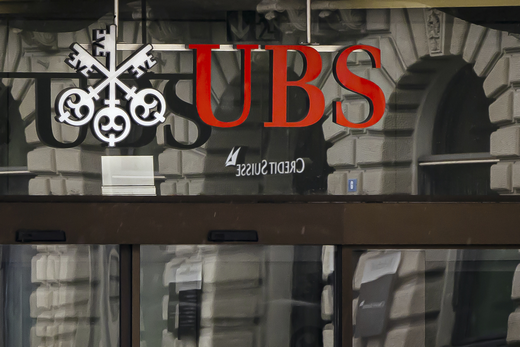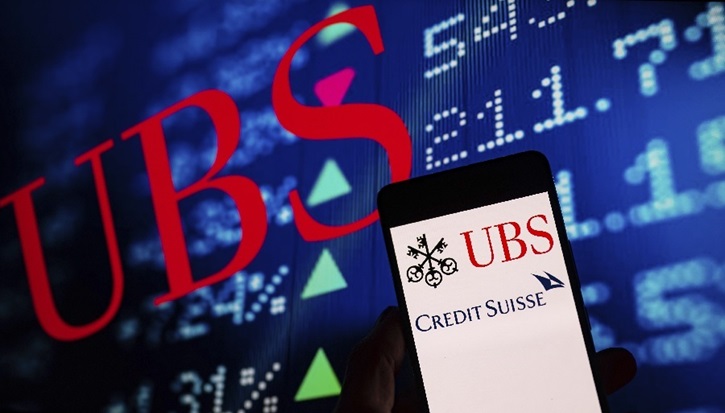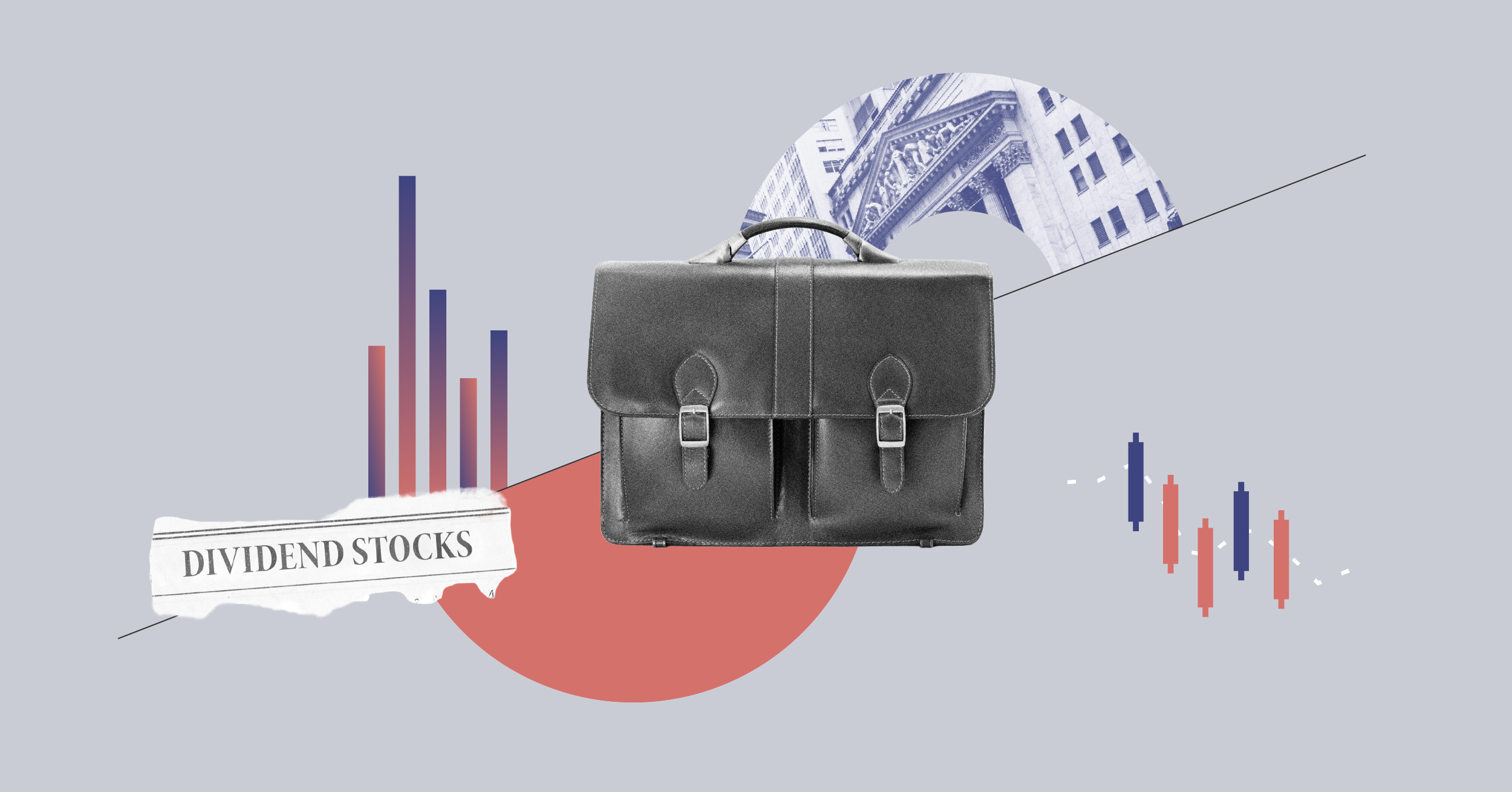
UK bank stocks fell in lockstep with their European counterparts on Monday morning as the market digested the acquisition/rescue of stricken Credit Suisse by rival UBS for $3.25 billion over the weekend. But UK policymakers followed European counterparts in insisting that there would be no contagion to the domestic financial system.
Barclays (BARC), HSBC (HSBA), Standard Chartered (STAN) saw the steepest falls at the start of the new trading week, shedding around 3% each. NatWest (NWG), in which the UK government holds a 45% following the bailout in the financial crisis, was down 2%, while domestically-focused Lloyds Banking Group (LLOY) was off 1%.
Losses are more significant on a monthly view as March has seen both Silicon Valley Bank and Credit Suisse implode in a short space of time. While both cases are company-specific, the aftershocks are leading global investors to fear a systemic crisis in the banking system.
These March falls in UK bank shares prices effectively wiped out the 2023 rally for "risk" assets. Barclays is the biggest faller over the month, shedding just under 25% since February 20.
In wider market terms, these bank falls are not that significant: the FTSE 100 is actually up in morning trading on Monday morning, although the index is off 8% over a month.
Morningstar analyst Michael Field says: "The UBS takeover in principle is good news, an expedited outcome, rather than wait and watch to see if Credit Suisse could actually manage the necessary restructuring. The problem for investors generally however, is that a takeover like this really does hark back to 2008 and forced takeovers of Merrill Lynch etc. Also, the speed at which Credit Suisse went downhill is worrying, and ultimately a real dent to market confidence generally.
"We’re at a strange point in the cycle where conditions are far from perfect, persistent inflation, interest rates still going up etc, all of which requires investors to really look beyond the short term and have faith that the economy will be better in 6-9 months time. The problem with this situation is the confidence required to keep markets going is precarious, and incidents like those occurring in the last week are enough to tip the scales towards pessimism."
Like their international counterparts, UK authorities are keen to avoid a rerun of 2008-2009, which cost the taxpayer billions and crimped economic growth for many years later. Both UBS and Credit Suisse employ thousands in the City of London, with statement buildings in Liverpool Street and Canary Wharf.
Credit Suisse said UBS has expressed its confidence that the employment of its staff – more than 5,000 of whom work in the UK – will be continued. UK customers of Credit Suisse are able to access deposits on Monday morning following the weekend’s deal.
As with the SVB fallout, domestic regulators are keen to insist there’s a global co-ordinated effort to calm market anxiety. Following on from the FCA’s statement on Sunday night that it is "minded to approve" the UBS rescue deal, the Bank of England weighed in too.
"We welcome the comprehensive set of actions set out by the Swiss authorities today in order to support financial stability," it said.
"We have been engaging closely with international counterparts throughout the preparations for today's announcements and will continue to support their implementation.
"The UK banking system is well capitalised and funded, and remains safe and sound."
The Bank of England is meeting this week to decide on UK interest rates. Market consensus points to a quarter point rise in rates to 4.25%, following a half-point rise in the previous meeting.
Policymakers may adopt a "wait and see approach" to avoid the PR fallout of hiking rates into a crisis. Last week the government insisted that official forecasts point to inflation falling back to 2.9% this year anyway, from a current rate above 10%. February inflation figures are due on Wednesday.
European policymakers also played down the contagion risks: Credit Suisse and the banking volatility in the US "don't concern French and European banks", Francois Villeroy de Galhau, a member of the European Central Bank's governing council, told France Inter radio.
Chancellor Jeremy Hunt said: "the UK Government welcomes the steps taken today by the Swiss authorities in relation to Credit Suisse to support financial stability."





























